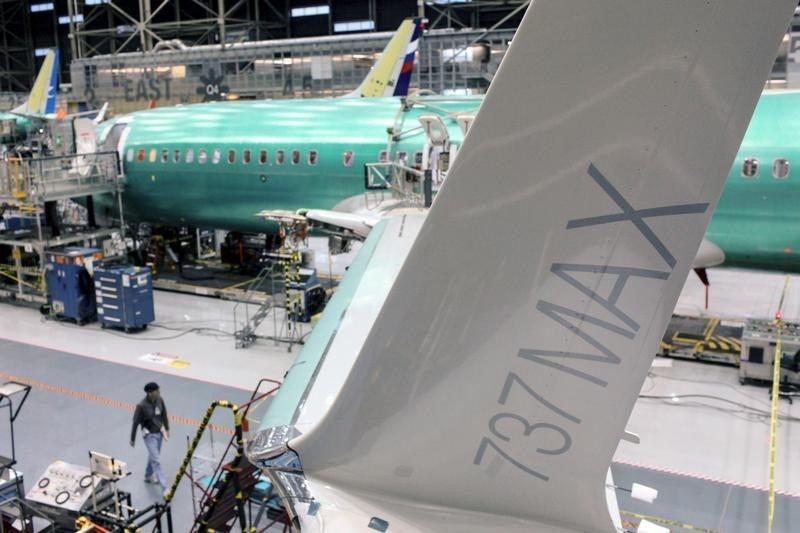By David Shepardson
WASHINGTON (Reuters) – The Federal Aviation Administration said on Tuesday it is investigating a union’s claims that Boeing (NYSE:) retaliated against two employees who urged the planemaker to cancel earlier engineering work on the 777 and 787 in 2022. reevaluate jets.
The Society of Professional Engineering Employees in Aerospace (SPEEA) said the two unidentified engineers were representatives of the FAA, which delegates some of its oversight authority and certification process to Boeing employees.
The union filed an unfair labor practice complaint with the National Labor Relations Board last week, saying the two engineers received identical negative evaluations after the incident.
Boeing said in a statement that it “has zero tolerance for retaliation and encourages our employees to speak up when they see a problem. After conducting an extensive review of documentation and interviewing more than a dozen witnesses, our investigators found no evidence of retaliation or interference. We found no evidence of retaliation or interference.” have determined that the allegations are unfounded.”
One of the two employees has left Boeing, the union said.
The FAA noted Tuesday that it has strengthened oversight of aircraft manufacturers in 2022 by protecting aviation industry workers in temporary jobs from interference by their employers. A December 2021 Senate report found that “the FAA certification process suffers from undue pressure on line engineers and production personnel.”
“Boeing can tell Congress and the media anything it wants about how retaliation is strictly prohibited,” said SPEEA Director of Strategic Development Rich Plunkett. “But our union regularly fights retaliation lawsuits, and in this particular case, Boeing is trying to hide information that could shed light on what happened.”
Remove ads
.
The union filed the complaint to gain access to a report Boeing submitted to the FAA about the incident.
The union said engineers found themselves at odds with Boeing executives in 2022, when “they insisted on using a different set of assumptions when analyzing the onboard computer networks on Boeing 777s and 787s, to comply with new FAA guidelines. “
The union said Boeing managers objected, saying it would cost money and cause production delays. After nearly six months of debate, the two engineers, with support from the FAA, prevailed and Boeing redid the required analysis, the union added.
Last week, Boeing quality engineer whistleblower Sam Salehpour, who raised questions about Boeing widebody jets, told senators he was told to “shut up” when he flagged safety concerns. He has said he was removed from the 787 program and transferred to the 777 jet because of his questions.


